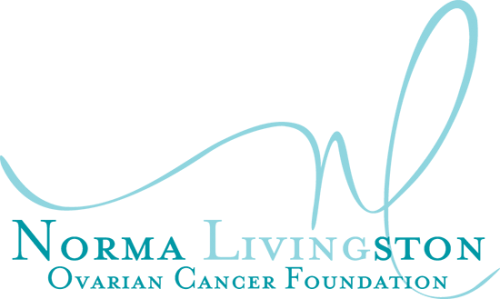Ovarian cancer is a type of cancer that begins in the tissues of the ovaries. The ovaries, located on either side of the uterus, produce eggs for reproduction, and are the main source of the female hormone’s estrogen and progesterone.
Ovarian cancer is when malignant (cancerous) cells develop in, near, or on the outer layer of one or both ovaries. Ovarian cancer is hard to detect and often is not found until it has spread to the pelvis and abdomen, making it difficult to treat. While it is not a common cancer, it causes more deaths than other cancers of the female reproductive system.
When ovarian cancer is found in its early stages, treatment works best. Ovarian cancer often causes signs and symptoms, so it is important to pay attention to your body and know what is normal for you. Symptoms may be caused by something other than cancer, but the only way to know is to see your doctor, nurse, or other health care professional.
Some mutations (changes in genes) can raise your risk for ovarian cancer. Mutations in the breast cancer susceptibility genes 1 and 2 (BRCA1 and BRCA2), and those associated with Lynch syndrome, raise ovarian cancer risk.
Ovarian cancers come in a variety of different tumor types. The most common tumor type is high-grade serous carcinoma, occurring in about 70% of ovarian cancer cases.
Ovarian Cancer Signs and Symptoms
- Vaginal bleeding (particularly if you are past menopause), or discharge from your vagina that is not normal for you.
- Pain or pressure in the pelvic area.
- Abdominal or back pain.
- Bloating.
- Feeling full too quickly, or difficulty eating.
- A change in your bathroom habits, such as more frequent or urgent need to urinate and/or constipation.
Ovarian Cancer Risk Factors
There is no way to know for sure if you will get ovarian cancer. Most women get it without being at high risk. However, several factors may increase a woman’s risk for ovarian cancer, including if you—
- Are middle-aged or older.
- Have close family members (such as your mother, sister, aunt, or grandmother) on either your mother’s or your father’s side, who have had ovarian cancer.
- Have a genetic mutation (abnormality) called BRCA1 or BRCA2, or one associated with Lynch syndrome.
- Have had breast, uterine, or colorectal (colon) cancer.
- Have an Eastern European or Ashkenazi Jewish background.
- Have endometriosis (a condition where tissue from the lining of the uterus grows elsewhere in the body).
- Have never given birth or have had trouble getting pregnant.
In addition, some studies suggest that women who take estrogen by itself (without progesterone) for 10 or more years may have an increased risk of ovarian cancer.
If one or more of these factors is true for you, it does not mean you will get ovarian cancer. But you should speak with your doctor about your risk. If you or your family have a history of ovarian cancer, also speak to your doctor about genetic counseling.
Ovarian Cancer Screenings
There is no simple and reliable way to screen for ovarian cancer in women who do not have any signs or symptoms.
Unfortunately, the Pap test does not check for ovarian cancer, it only screens for cervical cancer. Since there is no simple and reliable way to screen for ovarian cancer, it is especially important to recognize warning signs, and learn what you can do to reduce your risk.
Here is what you can do—
- Pay attention to your body and know what is normal for you.
- If you notice any changes in your body that are not normal for you and could be a sign of ovarian cancer, talk to your doctor about them.
- Ask your doctor if you should have a diagnostic test, like a rectovaginal pelvic exam, a transvaginal ultrasound, or a CA-125 blood test if you have any unexplained signs or symptoms of ovarian cancer. These tests sometimes help find or rule out ovarian cancer.
Statistics
Statistics from the American Cancer Society show:
- In 2022, it is estimated that 21,410 cases of ovarian cancer will be diagnosed.
- Of those diagnosed, 13,770 women are expected to die.
- The risk of a woman getting ovarian cancer is about 1 in 78 in her lifetime.
- Ovarian cancer ranks fifth in cancer deaths among women and causes more deaths than any other gynecological cancer.
- The five-year survival rate is over 90% when ovarian cancer is diagnosed and treated in its earliest stages.
- Only 20% of all cases are found early, meaning in stage I or II; if the cancer is caught in stage III or higher, the survival rate can be as low as 28%.
For more information on ovarian cancer, visit www.cdc.gov.











